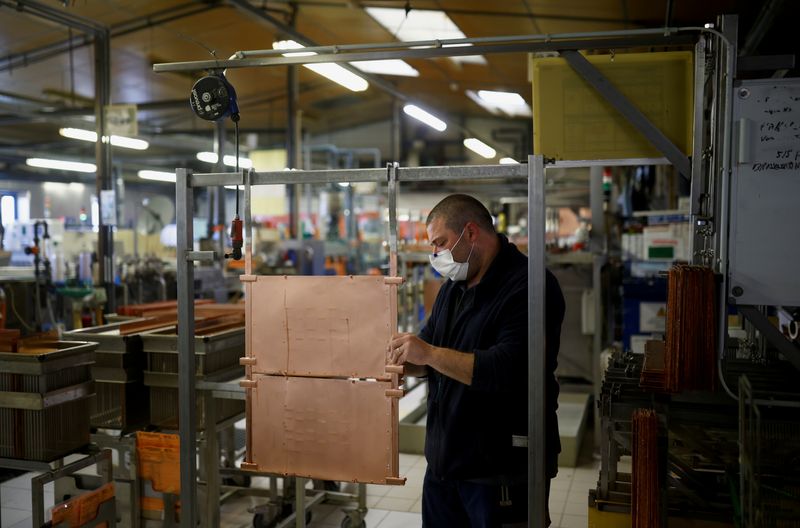LONDON (Reuters) - The downturn in manufacturing activity across the euro zone eased in November, according to a survey which suggests while the bloc's factories still face a harsh winter it may not be as bad as initially feared.
S&P Global (NYSE:SPGI)'s final manufacturing Purchasing Managers' Index (PMI) rose to 47.1 from October's 46.4, but was below a preliminary reading of 47.3 and under the 50 mark separating growth from contraction.
An index measuring output, which feeds into a composite PMI due on Monday and seen as a good guide to economic health, rose to 46.0 from 43.8, marking its sixth month of sub-50 readings.
"The PMI signals some welcome moderation in the intensity of the euro zone manufacturing downturn in November, which will support hopes that the region many not be facing a winter downturn as severe as previously anticipated by many," said Chris Williamson, chief business economist at S&P Global.
Suggesting there won't be a quick revival in the industry new orders fell sharply and a chunk of the activity was generated by completing backlogs of work. The new orders index remained firmly sub-50 at 40.7, albeit above October's 37.9 reading.
"There also seems to be no immediate respite in sight for the plight of manufacturers, given that order books continue to deteriorate at a worryingly steep pace, contracting at a far faster rate than firms are cutting production," Williamson said.
However, there were some signs inflationary pressures were easing, likely welcome news to policymakers at the European Central Bank. While remaining high, both the input and output prices indexes dropped substantially.

Inflation in bloc was a lower-than-expected 10.0% in November, official preliminary data showed on Wednesday, still five times the ECB's 2% target.
The central bank has been raising interest rates to try and tame price rises and is expected to add another 50 basis points later this month.